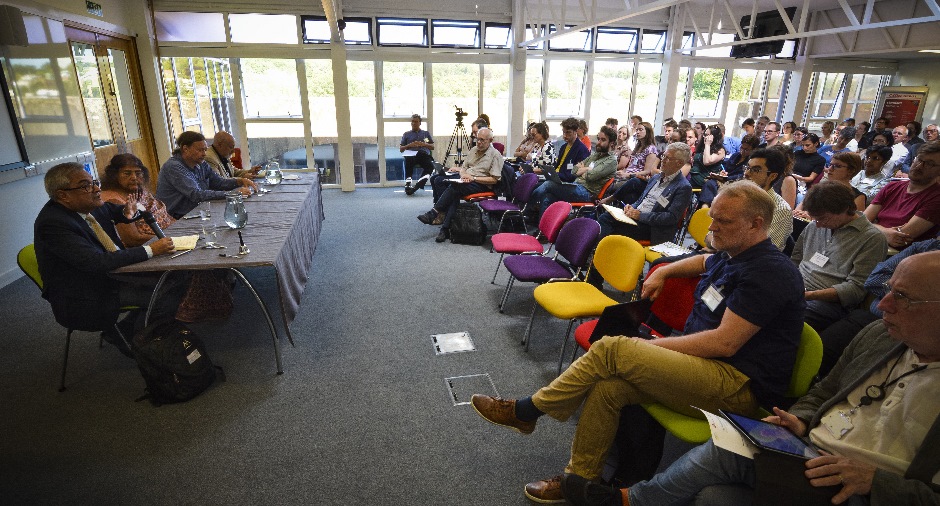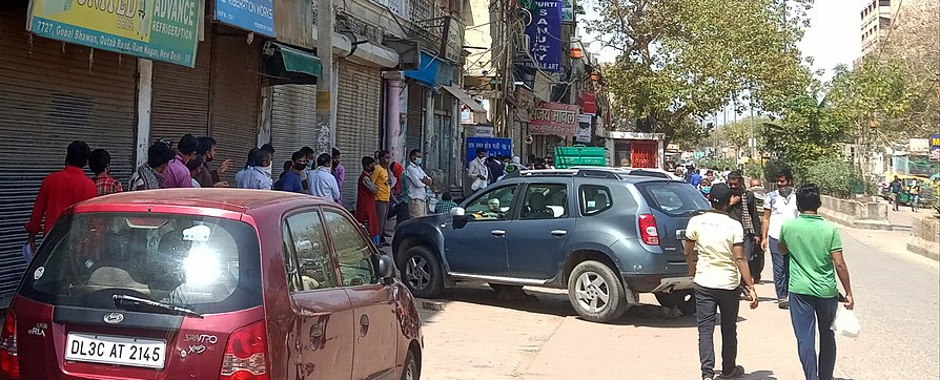This is one of a series of Stories of Change from the ESRC STEPS Centre.
Uncertainty is all around – from climate change and pandemics to financial markets and insurance. But why are some forms of uncertainty often ignored or downplayed, and what difference can it make to recognise and appreciate them?
Uncertainty is a concept that defines our times. Whether it’s the COVID-19 pandemic, climate change, disease outbreaks, economic conditions or political settlements, every media headline asserts that things are uncertain.
‘Uncertainty is written into the script of life’, as Helga Nowotny explains. But how should we understand uncertainty, and why does it matter? Are we equipped for responding to seemingly accelerating uncertainties across different policy domains?
These are the questions that the STEPS Centre has grappled with over the past 15 years.

beyond risk
A conventional, managerial and technocratic approach is to construct such challenges as risks — where the probabilities of future outcomes are known, or at least can be estimated.
The paraphernalia of risk assessment and management are familiar, derived from engineering approaches. These approaches are good for some cases, such as designing a bridge or road; but not for others, where complex socio-ecological dynamics are involved, as argued in a collaborative exploration of risk politics in India carried out with the Indian Institute of Management in Bangalore, with support from the UK-India Education Research Initiative.
India’s Risks: Democratizing the Management of Threats to Environment, Health, and Values
In fact, it can be dangerous to assume a level of risk, in situations where uncertainty (where probabilities cannot be determined) — or indeed ignorance (where we don’t know what we don’t know) — prevail.
Framed by a risk-based approach, our institutions and policies are often poorly equipped for an uncertain world. A risk-focused stance suggests that the future is controllable and that a modernist vision of progress is achievable, if only effective science and technocratic institutional control are applied.
Embracing uncertainty, however, suggests a rather different outlook on the pressing challenges of sustainability and development, where a more tentative, adaptive, improvised approach becomes essential.





conversations about uncertainty
During 2019, the STEPS Centre’s thematic focus was uncertainty. Through a series of events across the year, we discussed a number of themes, which became the focus of our explorations at a major international symposium, along with a series of videos, blogs and podcasts, and ultimately an open access edited book, The Politics of Uncertainty: Challenges of Transformation that came out in 2020 in the midst of the global COVID-19 pandemic.
Our symposium and subsequent book explored the politics of uncertainty in different arenas: finance and banking, insurance, technology regulation and critical infrastructures, climate change, infectious disease responses, natural disasters, migration, crime and security, and spirituality and religion.
All have common features, where the future is not known, yet action is required. This raises fundamental questions about the directions of sustainability and development.


If a focus on uncertainty undermines a narrow, modernist view of progress and development, what alternative visions of modernity are opened up? As our research has shown, multiple modernities, constructed through different cultural responses to uncertainty, informed by diverse social imaginaries of the future exist. This suggests very different possible futures informed by culturally-located perspectives on directions of progress and sustainability.
STEPS work across domains, and picked up by wider work represented in chapters in the book, has highlighted a number of important implications.
Science and policy
When we don’t know what we don’t know, and where ‘not knowing’ is a pervasive feature of engagement with the world, this has profound implications for science and for policy. The features of indeterminacy, ambiguity and surprise intersect when dealing with a pandemic for example, exposing blind spots, biases and ‘wilful blinkers’. Approaches such as practical heuristics and rules of thumb, combined with open, deliberative dialogue can help navigate uncertainties, but require trust, engagement and democratic institutions to facilitate this.
Unruly socio-ecologies
When natural hazards and human impacts are inevitably mutually constituted — in a sudden pandemic outbreak, a natural disaster or through long-run environmental degradation — with multiple intersecting agencies of both human and non-human actors, a politics of sustainability should not defer to externalised, constructed notions of hazard, emergency or disaster, but must respect deeply intertwined socio-ecologies, where notions of singular, directed ‘human control’ are rejected.
Distribution and justice
If the impacts of diverse risks and uncertainties are unevenly felt, the implications for how risks and harms are distributed by class, gender, race, age and location are critical. Whether around climate change or pandemic outbreaks, such issues have been starkly exposed. We must ask therefore what are the political ecologies and economies of uncertainty, and what forms of accountability and meanings of citizenship are required in a new politics of uncertainty?


Governance
When the world is simply not controllable and conventional institutions and policies not up to the task, what alternative forms of governance become appropriate? Ideas of experimental, adaptive, networked, reflexive governance become appropriate as a route to generating reliability in the face of uncertainty and ignorance.
A more open, collaborative, mutualistic and collective set of arrangements can in turn facilitate democratic responses to uncertain and unruly challenges, both small and large.





What methodologies can help?
All this suggests the need for new methodologies which allow for an opening up to uncertainty.
Styles of experimentalism, citizen participation, transformative action and ‘post-normal’ science can assist in revolutionising methodologies for science and policy that take uncertainties seriously.
As the STEPS Centre project on ‘uncertainty from below’ has shown, contrasting framings between climate change modellers and local villagers dealing with climate impacts on a daily basis results in highly contrasting responses to uncertain conditions. Dialogue between different actors and co-constructing alternatives to facilitate transformation is essential, facilitated by those able to bridge and mediate between different perspectives.
In the face of huge sustainability challenges in a complex and turbulent work, STEPS Centre work argues therefore that an embrace of uncertainty can generate new forms of hope and possibilities of action, creating a new politics of sustainability and development. This requires an intellectual and practical humility, where dominant pathways that are centred on standard conceptions of modernity and progress are challenged and alternatives are explored.
A more open, tentative, humble practice of science and policy is suggested. But this is not one that we have seen during the COVID-19 pandemic, nor around most other global challenges, where a centralised, controlling, technocratic approach still dominates. Instead a more convivial politics of science and policy for sustainability is suggested, which would root responses to uncertainties in ethics and practices of care, mutuality and collective action.
Find out more





Stories of Change
From 2006-2021, the ESRC STEPS Centre explored pathways to sustainability – showing the important roles that marginalised ideas, knowledge and forms of action could play in responding to complex social, technological and environmental challenges.
In this process, we were involved in many process of change, from local struggles to high-level international debates. These Stories of Change explore some key themes from STEPS work, to share what we learned.
